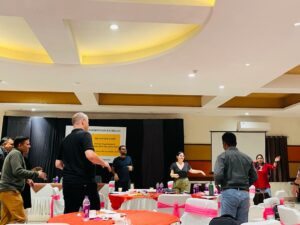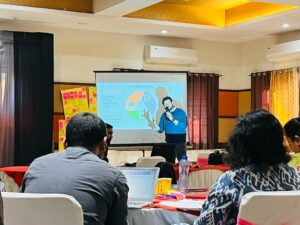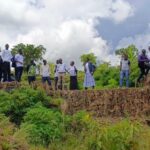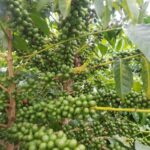Towards a better understanding of systems change: 2nd GTP partners meeting in Jabalpur, India
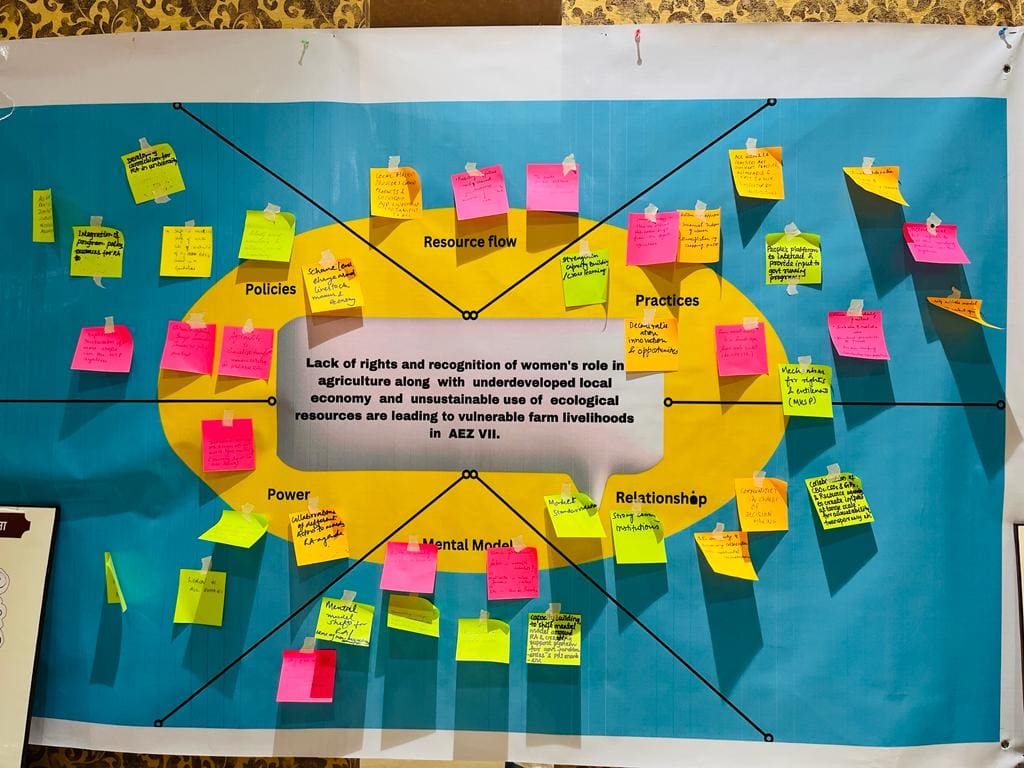
Article by Marina Vara Gutiérrez
The Green Transformation Pathways (GTP) project is an ambitious initiative that aims to create a vibrant rural economy in the states of Madhya Pradesh and Jharkhand in India. Funded by the IKEA Foundation and implemented through a consortium of four organizations – Professional Assistance for Development Action (PRADAN), Foundation for Ecological Security (FES), MetaMeta, and AidEnvironment – the GTP program focuses on sustainable management of natural resources and regenerative agriculture practices to improve the quality of life within communities.
But the GTP program is about more than just improving living standards – it also aims to enhance a circular local economy based on the exchange of valuable products and services and supported by strong institutions and value chains. Championing a feminized context, the program is committed to supporting and empowering the vital roles and contributions of women in rural areas. The GTP program also aims to foster systems change in the project areas. It seeks to shape policies, power dynamics, resource flows, mental models, practices, and relationships in a way that will allow successful interventions to be autonomously taken up by citizens and institutions once the project is completed.
The second partner meeting, held in the city of Jabalpur, Madhya Pradesh from October 22nd to 24th, was a key event for the GTP program. During the three-day workshop, the representatives of the four partner organizations took a thorough look at the progress of the program so far, discussing the ground and system-level problem statements and identifying any potential barriers to achieving the program’s objectives. They also provided an overview of the various pilot interventions being developed at ground level and the work done by the different PRADAN field teams.
One of the standout achievements of the second partner meeting was the development of learning groups. These groups bring together experts from the four partner organizations to work on activities in the field while focusing on documenting key lessons, building evidence, and monitoring progress. A total of eight learning groups were created, covering themes such as regenerative agriculture, large-scale composting, integrated water resource management, green roads for water, commons management, local economy, ecologically-based rodent management, and the centrality of women.
In addition to the learning groups, the second partner meeting also saw the development of a GTP Communications Strategy. This strategy aims to inform, influence, and inspire communities in project areas and external stakeholders about the progress and impact of the GTP program.
Overall, the second partner meeting was a highly successful event, with all four partner organizations sharing a common vision for the GTP program and a commitment to collaboration in the coming months. The next partner meeting is scheduled for April 2023 and will provide an opportunity to reflect on the progress of the program and identify any further areas for development.

